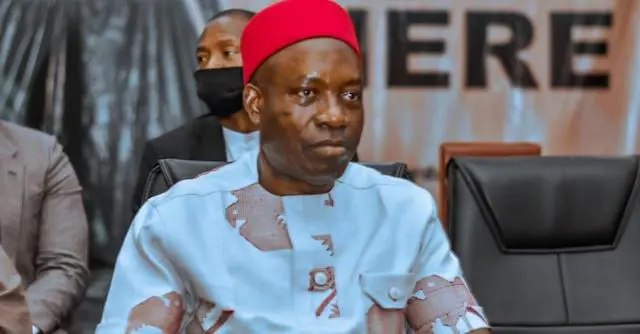Stakeholders from the Ezinano Community in Awka, Awka South Local Government Area of Anambra State, have attributed poverty and unemployment as major causes of cult-related violence in the state capital.
They states this at a security summit titled “Combating/Preventing Violent Crimes and Cultism in Awka Metropolitan City,” held at Emmaus House, Arthur Eze Avenue, Awka, on Wednesday.
Ozo Jeff Nweke, speaking on behalf of the stakeholders and as the convener of the summit, urged State Governor Chukwuma Soludo to intervene as a matter of urgency.
Nweke also appealed to residents to take proactive measures against the rising violent crime in Awka, which has claimed many young lives in the area.
He explained that the summit aimed to brainstorm solutions to the problem.
ALSO READ: National Youth Dialogue: Five key components to know about FG’s new initiative
“Ezinano Community, comprising 20 villages, including Umudiana Amikwo, Okperi Amikwo, Igweogige Amikwo, Ishiagu Amikwo, Obunagu Amikwo, Onuko Amikwo, Umukwa, Umuogwali, Umueri, Umuogbunu I, Umuogbunu II, Umudioka, Umuogbu, Umumbele, Umuike, Umuonaga, Umujagwo, Umuoruka, Umuenechi, and Umuokpu, has been severely affected by violent crime and cultism.
“Before Awka was chosen as the state capital, the community was known for its hospitality, creativity, and hard work, not for crime.
What is happening in our community now is beyond our imagination. Cultism and other violent crimes are having a severe impact.
We are burying our children, uncles, and cousins daily due to this troubling development, which was never part of our culture and traditions.
“Our youth are turning to cultism due to poverty and unemployment, while the state government has not taken adequate action.
We no longer have land for our women and youths to engage in subsistence farming to alleviate their hardship.
“At this point, there is a need for improved community-police relations and for security agencies to use in-depth knowledge to address the problem.
“Awka residents must take responsibility for their own security. We cannot rely solely on the police commissioner or the DSS for protection; we must also defend ourselves.”
Nweke, while commending the police and other security agencies for their assistance, also called for additional external help to complement local efforts.
The Commissioner of Police, Obono Nnaghe Itam, represented by Deputy Commissioner of Police Anaetie Eyo, identified inferiority complex, domestic violence, unemployment, and social injustice as underlying causes of cultism.
He traced the origins of cultism to tertiary institutions, noting that street cultists are often recruited by individuals who have graduated from higher institutions and are seeking a sense of belonging.
Additionally, he criticized politicians for recruiting cultists during elections and highlighted the role of dysfunctional homes in contributing to cultism.
The CP emphasized that security should not be a one-man affair and called for collaboration in combating crime.
He underscored the crucial role of families and schools in preventing cultism and other crimes and called for a joint effort between these institutions and security agencies to address the issue effectively.
NIGERIAN TRIBUNE
